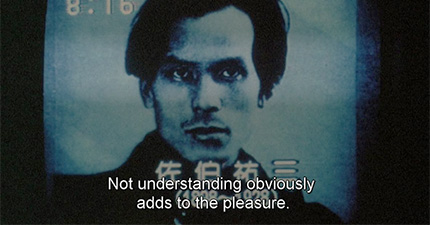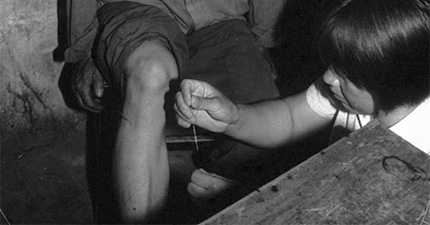I felt a desire to write this article about how to support people because a lot of us are going through it currently. We’re scared of being detained and disappeared. We’re losing work and income. A lot of us are met with crisis after crisis in a way that prevents us from thinking long term and, despite all of that, we are trying to come together and resist what is being done to us.
Assata Shakur passed away recently. The most intimate experience I had with her work was when I attended a meeting led by a political elder who shared with us her prayer: “It is our duty to fight and win. We must love and support each other. We have nothing to lose but our chains.” Whenever I remember Assata Shakur’s prayer, I remember being in that basement room chanting it together with people while holding hands.
So, I felt like writing an article about how to support each other. That’s the second part of the prayer, the part that teaches you how to fight.
I’ve been an astrologer for more than ten years now. A part of being an astrologer is about looking at weird looking charts but the other part is about the very basic skill of how to support another person. Supporting another person’s desire to live is what helps them hold the factuality of their future.
My rule about supporting another person is simply this: work from a place of what they have and not from a place of what they think they lack.
Social media self improvement culture is full of spiritual-like sayings that sound wise but can’t do all that much for you. There’s a whole industrial echo chamber out there that is always telling you what you need, what you should work on, what you haven’t done enough of, how you have abandoned yourself, what you have yet to understand, and so on. No matter how smart or wise abstract ideas appear, starting from a place of lack is useless because no one can act from lack. You might feel shocked from your own perspective but you have no idea what to do.
Supporting another person isn’t about just challenging their perspective in a way that feels inspiring in the moment. That’s a gimmick. It feels nice but it’s not helpful. Supporting another person is about supporting who they already are so that they can challenge their own perspective in a way that is tangible. As Octavia Butler once said, inspiration can be useless. Habit is everything.
What do you already have? What are you already doing? If you are in a place of wanting more, then how do you build upon what you already have and what you already know how to do because there’s things that you’re already good at?
Take safety for instance. All of us have methods of self protection and those methods are very different. Some of us feel that self expression is safe and that silence is dangerous. Some of us feel that privacy is safe and that performance is unsafe. Each of us have developed skills around self protection that make sense in the context of our lives and what we are trying to do. The trouble with making random suggestions about how someone can challenge their idea of safety or replace their self protection skills with new ones is that people are different people. What works for you might not make sense for another person.
You have to listen to people about the person who they are. You have to try to understand that person and you have to listen for what is already consistently reliable.
A lot of people actually have a hard time seeing what is working in their lives, what they have consistently been able to rely on and what is valuable. Most of us get sick of people who we spend a lot of time around and the person who we spend the most amount of time with is ourselves.
When you point out what is already working well in another person, that person will see and recognize that in themselves in a far deeper way than you can as an outsider to their perspective. Because that person has a deeper perspective on themselves than you do, they will clearly see how they can grow the skills they already have or change them in ways that are more helpful to what they are currently encountering in ways that you actually can’t because you are not them.
Let’s go back to safety as an example. The act of being brave is not a one size fits all streamlined action. Courage shouldn’t feel abstract. You will know more about what it means for you to be brave in your life and your context when you take a real look at what you do to keep yourself safe and value all of those acts. Take a good hard look at what your caretakers have done to keep you safe, the good and the bad, and see what works. Once you have done that, you will know what bravery means to you. Courage will no longer feel abstract because you will know what your courage means.
I’ve always believed that spiritual support is a political action. Political action is not the same thing as self improvement. Our culture of ruthless self improvement will tell you to dispose of the person who you already are to become newer, better, smarter, and better functioning. However, you are already someone. You have wisdom that comes from your life and your lineage that is valuable and important. Self improvement culture will never tell you to look back at what you already have and what has been done for you but you must. You have to know who you already are.
Let’s continue to love and support each other. Times are tough right now. Self improvement isn’t going to do shit for you. You have to support people based on who they are.


